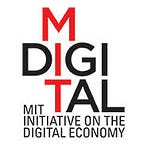MIT Summit Will Examine the Deep Impact of Social Media
What does it mean in 2021 to rescue the truth or to humanize digital design? Why are free speech and antitrust heated issues once again?
In fact, new conversations, debates, and developments in all of these critical areas are not only timely, but essential in today’s digital world. On April 22 the MIT IDE Social Media Summit aims to spark dialogs that will lead to more promising outcomes.
“Social media has become a potent global force and it’s the job of business, public-sector and academic leaders to understand and interpret its complexity,” said MIT IDE Director, Sinan Aral, who will host the day-long event. As events unfold in our daily lives we see the power social media is exerting: From the November U.S. presidential elections, attitudes about coronavirus vaccines, and deleting accounts on Twitter or Facebook. “We’ve recently lived through numerous social media crises and disruptions to our economies, democracies, and public health,” he said. At the MIT Summit, experts will offer solutions to “steer us toward the promise of digital technologies and away from the perils.”
Consider these MIT IDE research data points:
- Days after the U.S. election only 22% of Trump voters agreed that President Joe Biden was legitimately elected; 40% of Trump voters said they would remain unconvinced of the legitimacy of Biden’s win, according to this IDE research paper on the role of social media on elections.
- Providing accurate information via social media about the percentage of people in the same country who say they will accept a vaccine increased acceptance intentions across 23 countries, according to a recent study by the IDE.
- Misinformation about COVID-19 has proliferated on social media for months and travels faster than true information, according to IDE studies.
Truth, transparency, competition, and bias are all at stake in the design of digital systems and the dissemination of information through those networks. But who should dictate and regulate social media — governments, the tech industry, or independent committees? And who will enforce them? These issues are will be addressed at the Summit.
Among the featured speakers are global leaders, media figures and business executives who experience the complexities of social media accountability in their daily lives. They offer a variety of perspectives including strong, often controversial, insights that will make for lively interactions and compelling exchanges. IDE leaders, Renée Richardson Gosline and Andrew McAfee will co-host the event.
Rappler, Facebook Execs to Speak
Rappler CEO and outspoken Philippine journalist Maria Ressa, knows first-hand the precarious state of truth and press freedom. She was convicted of libel in June 2020 and sentenced to up to six years in prison — then freed on bail. The sentence was widely seen as a blow to democratic freedoms under President Rodrigo Duterte’s increasingly popular authoritarianism. Ressa, was named a Time Magazine Person of the Year in 2018 for fighting media intimidation. She will speak on the panel, Rescue the Truth, at the MIT event.
Also headlining the Summit is Nick Clegg, VP Global Affairs, Facebook. In a conversation with IDE’s Sinan Aral, Clegg, previous deputy Prime Minister of the U.K., will likely address the controversy in Australia over Facebook’s news ban earlier this year and how the social media giant will address problems with hate speech, censorship, and growing political concerns on the platform.
Other speakers on the agenda include:
- Maria Renske “Marietje” Schaake, a Dutch politician who served as Member of the European Parliament from the Netherlands between 2009 and 2019. She is part of the Alliance of Liberals and Democrats for Europe Party. Schaake says democracy is under attack from propagandists and bad actors and will discuss the need to Revive Competition.
- Eli Pariser, the former MoveOn director, helped pioneer the concept of citizen engagement and as Upworthy CEO, he wants to use social media and viral content for positive, democratic purposes.
- Yaël Eisenstat, former CIA officer, former global head of elections integrity operations, and Facebook visiting fellow.
- Richard Stengel, former undersecretary of state for public affairs and diplomacy; former managing editor of Time magazine.
